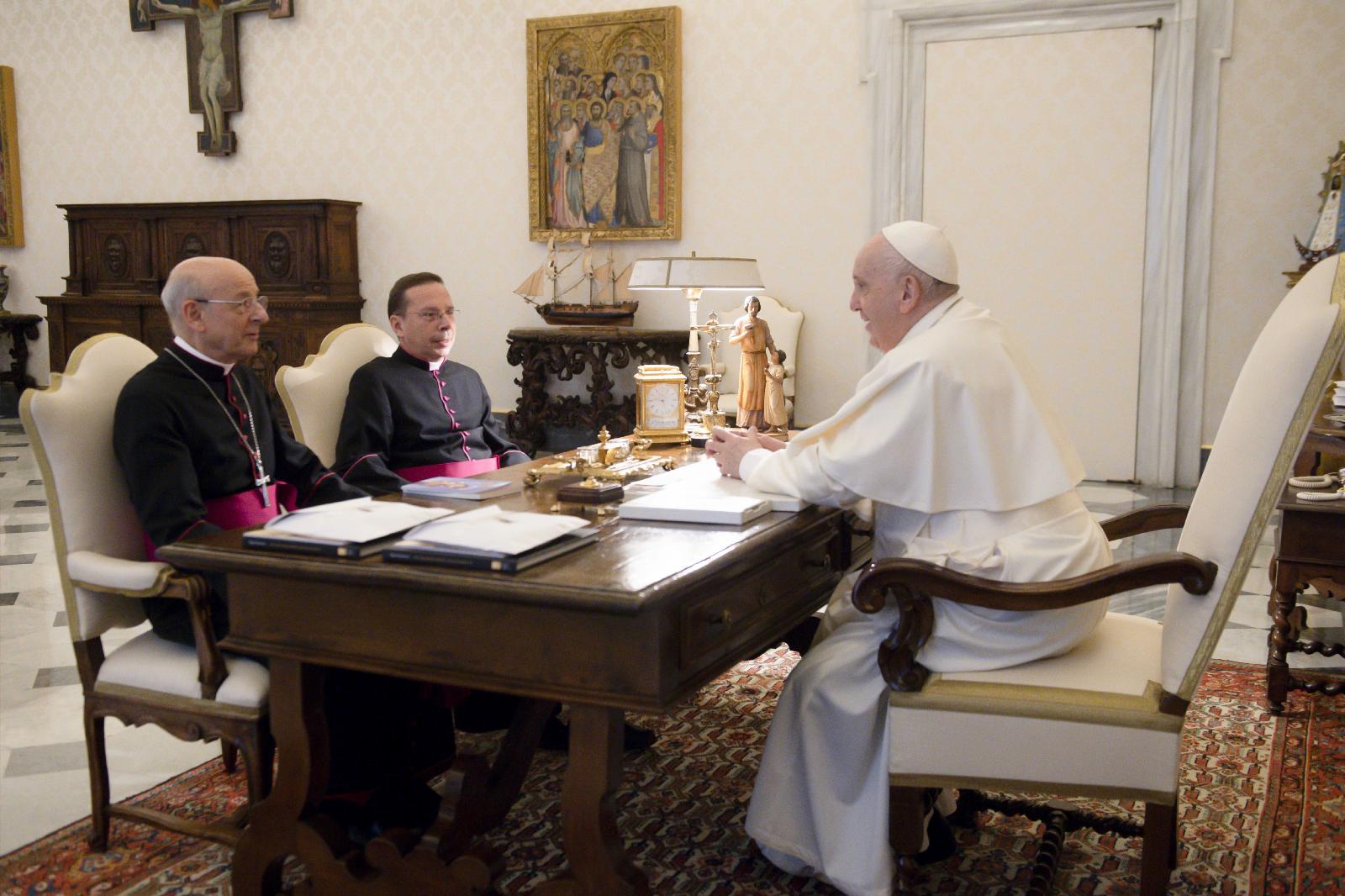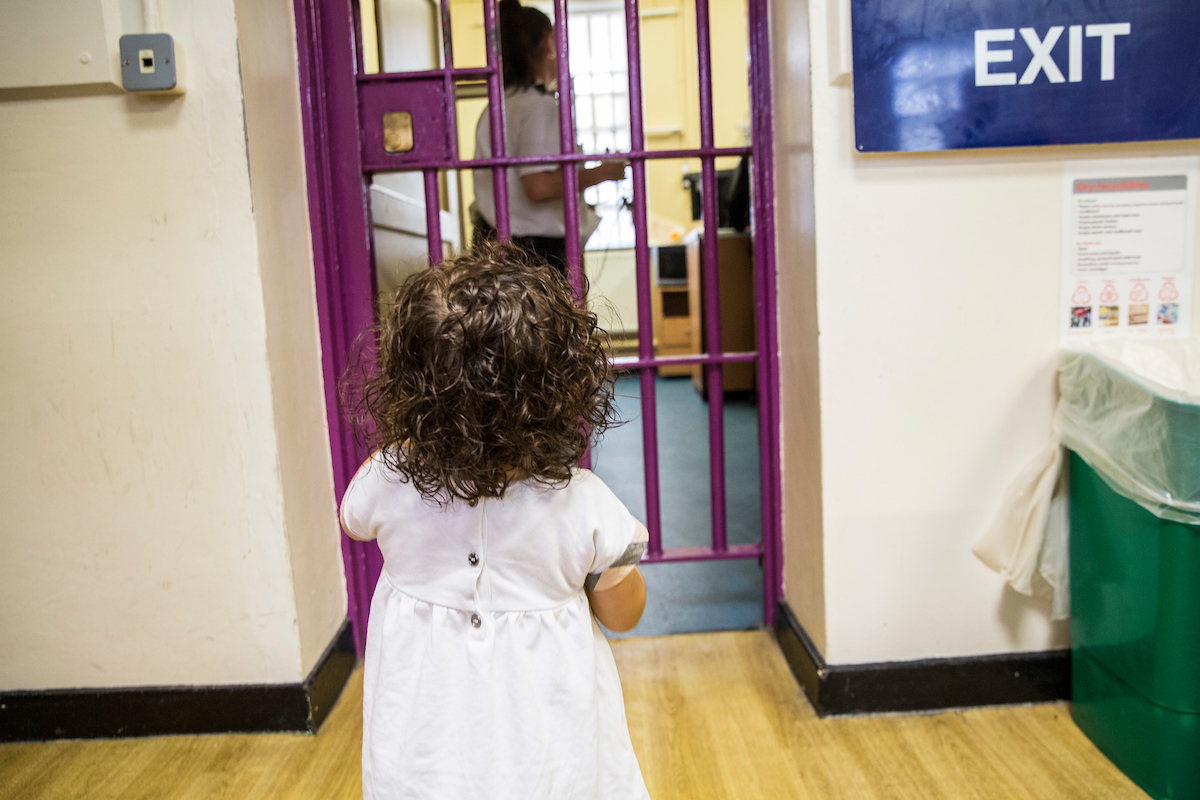Working for Pact, the Catholic prison charity, is taking me to some interesting places. Prisons of course – but also chapels inside prisons, Pact Family Visitors Centres, and even cafés run by prisoners. These are just a few of the locations I have found myself in recently, along with cathedrals, bishop’s sitting rooms and parish halls and of course, online. My work is varied. On Tuesday 12 July, I found myself in the House of Lords, in the Cholmondeley room, overlooking the Thames. I stood with members of the Lords, MPs, funders, academics, Pact staff, prison governors and many more people, including the most important guests, a small group of women who Pact has recently supported
We were there for the launch of a new report into “Together a Chance”, a pilot scheme run by Pact. The scheme has placed dedicated social workers in two women’s prisons to provide appropriate support to the mothers there. We heard that the scheme is already yielding significant benefits. The interim evaluation report is published by the University of Cardiff. We watched a short film where mothers in prison who had been supported by Pact social workers said: “For the first time in years, I feel heard” and: “I feel like my relationship with my children matters.”
Fresh from organising a batch of Pact diocesan roadshows to share our work with Catholic communities, I have been reflecting on what mattered to roadshow participants. One person said they valued “hearing about part of our parish which is mainly under wraps”. One of our key Roadshow messages is that prisoners and their families are not people whose lives are happening elsewhere, but rather they are part of us, the parish community and the wider communities in which we live.
Among those gathering for the Pact diocesan events, I have met people already working to support prisoners and their families in paid or voluntary roles, such as chaplaincy volunteers, probation staff, or prison visitors. Some people who came along had lived experience of the criminal justice system although they may or may not have spoken about it on the day. There were also people who knew little or nothing about prison but felt drawn to find out more. I braced myself for the regular feedback that Catholic people had not been especially aware of Pact in advance, despite us working to support prisoners and their families since 1898.
As part of each roadshow, I shared a film clip of a woman talking about the lonely and difficult experience of her partner being sent to prison. She recounts how she had to take her child into the school through a different door because “people were talking about me in the playground”. Roadshow participants were moved and galvanised by the idea of “hidden sentences” being served by family members. People spoke up strongly about our call as Catholics to be with the marginalised, and not to judge.
In another film, a former prisoner communicates in spoken word poetry how finding faith helped him to finally break his revolving door of prison and substance abuse. A Pact Ambassador, recently released from prison, came in person to one of the Roadshows to share his story. He communicated with striking dignity. He said later how much he had enjoyed being with us.
The lived-experience narratives we listened to were often complex and messy and yet fulfilled the sometimes barely-believed hope that change is possible and that change also happens to those of us listening or walking alongside. From conversation around the tables, we recognised our own families and our own experiences reflected in some elements of the testimonies. The pain and sheer grit needed to turn a life around was impossible to take lightly when recounted by those living it.
In this context, I found it affirming to draw out some of the principles of Catholic Social Teaching together. We looked at Human Dignity in most detail, drawing on the work of Professor Anna Rowlands and articulating our responsibility as a community to carry the dignity of each other. Afterwards when asked whether participants felt that the values of our faith are relevant to the criminal justice system, the answer was strongly: “Yes.”
Our local services staff attended each event to talk about the work Pact does “where you are”. Their descriptions were enriched by stories of precious encounters where prisoners or their families had expressed deep appreciation for the efforts of Pact people. The listeners were surprised and impressed at the range of commissioned services Pact provides and conversely also that we serve people of all faiths and none. I too rejoice as a Catholic Christian to be part of an organisation which is true to its roots in the church and informed by the values of our faith, while also operating effectively in the modern world. I describe Pact as both “authentic and savvy”.
We aspire to bring together in each diocese all those working to support prisoners and their families from the Catholic church or other churches and groups who share our values so that connections can be made. So far, we have partnered with Caritas and with The Welcome Directory, the latter a multi-faith charity that helps parishes become places of welcome for those leaving prison. The events were lifted by the presence of the bishop and prison chaplains (men and women) who expressed a spirit of gentle, reliable accompaniment of those affected by the criminal justice system. This ministry by some of our clergy had been under wraps for me too until recently. The closing liturgies led by prison chaplains helped us to feel a spiritual solidarity with those they minister to ‘inside’ and in some cases to notice the change happening already in ourselves.
Pact’s “faith in action” team (myself and my colleague Marie Norbury) offer practical opportunities for parishes and individuals to get involved in. For example, we have developed a Pact parish representative role, which many Roadshow participants expressed an interest in. There are different ways to become a trained volunteer with Pact, including roles which can be done from home. Pact operates the national Prisoners’ Families Helpline. I look forward to one day knowing that helpline posters are on display in all parishes and community hubs across England and Wales so that affected people know where to turn. I certainly saw useful new contacts being made at roadshows and the beginning of creative plans to work together with Pact in support of prisoners and their families.
We are planning further diocesan roadshow events. There is so much to talk about together. Sometimes I wonder if the phrase “putting faith into action” is in danger of becoming a little worn around the edges. But, going back to the woman at the beginning of this piece, I ask myself whether Jesus himself feels heard yet. I galvanise my own efforts by turning his challenge into a question for myself, and for the church: “I was in prison, and you?”
Contact Theresa parish.action@prisonadvice.org.uk
Consult the parishes and groups pages on Pact’s website.
Prisoners’ Sunday is on 9 October this year.
Together a Chance interim report findings are on the University of Cardiff website.



 Loading ...
Loading ...
What do you think?
You can post as a subscriber user ...
User comments (0)